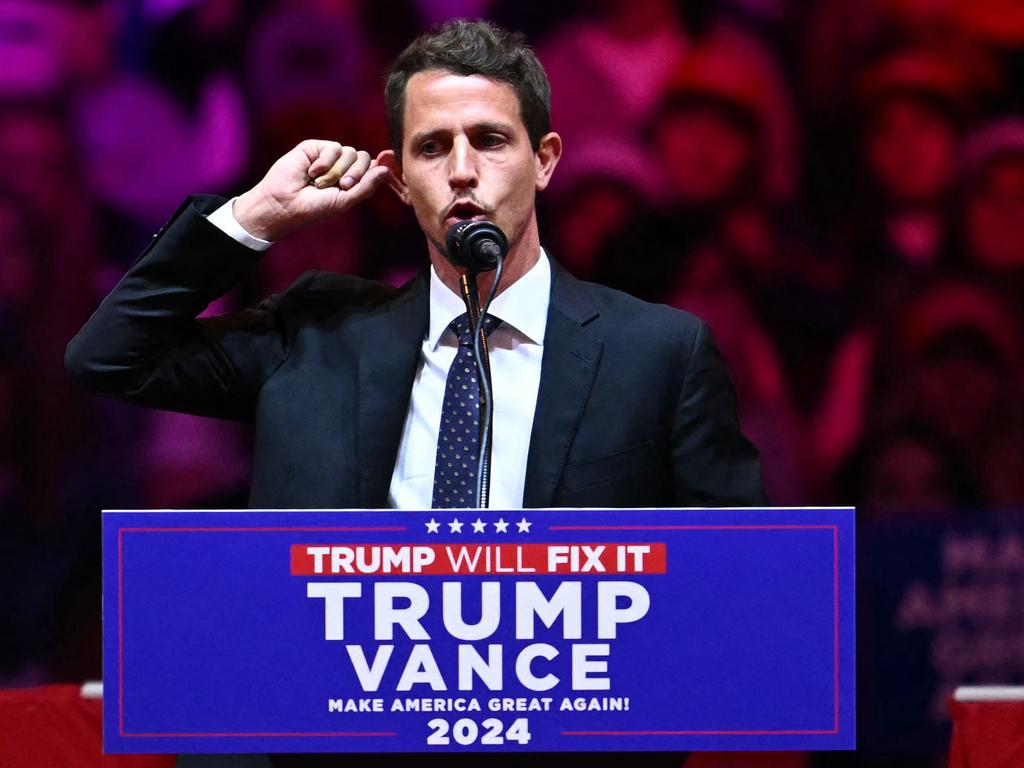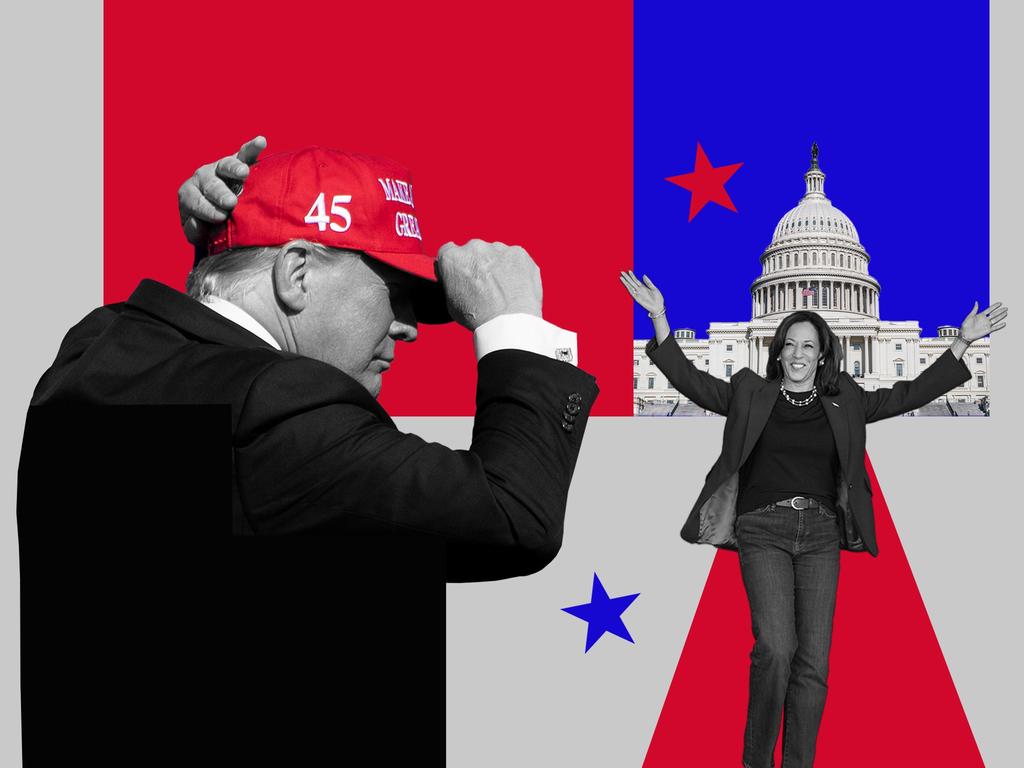If Donald Trump derangement persists, read your WWII history


It is not just that Vice-President Kamala Harris, in a response to a question from Anderson Cooper, told the CNN interviewer that Donald J. Trump was a fascist. After all, Trump on occasions has called Harris a fascist and a communist.
The problem is that the pointscoring by abuse has been upgraded to describing the former president as a Nazi akin to Adolf Hitler. This is quite a step up (or down) from linking Trump to Italian dictator Benito Mussolini, who is primarily associated with fascism. In his book Fascists, Michael Mann wrote that, as a word usage today, fascism “appears largely as the exclamation Fascist!”. To the author, fascism is an “imprecise term of abuse hurled at people we do not like”. Mann wrote this two decades ago; today the noun is almost meaningless.
So it comes as no surprise that this term of ideological abuse has been scaled up. That’s why Trump is now being described as not only a Nazi but also as Hitler. This diminishes the memory of the millions of victims of Hitler and his Nazi Germany regime, in particular, the six million Jews who were murdered during the Holocaust.
Speaking on Fox News’ The Five last Friday, American political consultant Jessica Tarlov, a strategist for the Democratic Party, spoke out against the association of Trump with Hitler.
In Australia, the ABC is very much a conservative-free zone. I am not aware of any conservative presenter, producer or editor at the taxpayer-funded public broadcaster who is an employee or paid regular contributor. However, on Rupert Murdoch’s right-of-centre Fox News in the US, several Democratic Party supporters who are liberals (in the North American sense of the term) appear on the channel’s leading public affairs panels as presenters or contributors. It makes for interesting debate, which is rarely found these days on the ABC.
When discussion on The Five turned to the allegation that Trump was a Hitlerite, Tarlov had this to say: “I don’t think anyone should be called Hitler. Hitler is a uniquely depraved human being and I don’t want to use his name in those contexts.”
Quite so. The Nazi party in general and Hitler in particular are a unique product of Germany from shortly after the end of World War I until the nation’s total defeat and surrender in May 1945. Put simply, there is no one in mainstream politics in Western democratic societies who can remotely be compared with the founder of the Nazi totalitarian dictatorship.
The attempt to link Trump with Hitlerism picked up pace in recent days when Tim Walz, the Democratic vice-presidential candidate, drew a connection between Trump’s rally at New York’s Madison Square Garden last weekend to an event that occurred in 1939. Walz declared: “There’s a direct parallel to a big rally that happened in the mid-1930s at Madison Square Garden – and don’t think that he (Trump) doesn’t know for one second exactly what they’re doing there.”
The reference was to a rally held in February 1939 by what is best described as an American pro-Nazi party that was supported in the main by some German Americans. It is not at all clear whether Trump was aware of this fact. Moreover, the site of the 1939 rally was demolished in 1968 and a new Madison Square Garden was constructed about a kilometre from the earlier location.
Former US secretary of state Hillary Clinton jumped on the Walz ideological bandwagon, apparently forgetting for a moment that she had participated in a political event at the Garden some years earlier.
In Australia, Walz’s fake historical comparison was repeated on Wednesday by American journalist Bruce Shapiro in his slot on ABC Radio National’s Late Night Live. He said the announcement of Trump’s proposed rally “immediately evoked comparisons with a kind of notorious event in New York City history in February of 1939 at a rally at Madison Square Garden of the … leading American pro-Nazi group at the time”.

Trump is no historian. But he did tell Sean Hannity on Fox News’ Hannity program last Wednesday that his father told him never to speak about Hitler or Nazism. The former president’s paternal grandparents were born in Germany.
Appearing on the ABC TV Insiders program on September 11, 2016, I stunned presenter Barrie Cassidy by stating that Trump had a possible path to victory over Clinton by winning in Florida, Ohio and Pennsylvania. In fact, he won Michigan and Wisconsin as well. In doing so, I said that I was no fan of Trump. He is not my preferred political conservative. But he does have appeal and he is a great performer.
Trump won narrowly in 2016 and lost narrowly in 2020. Clearly, he has significant support in the US, especially among those whom Clinton once dismissed as deplorables and President Joe Biden recently described as garbage.
Writing in The New York Times on October 22, columnist Bret Stephens commented that if Trump happens to win, the main culprits will be the Democrats. In particular, those who treated the former president’s supporters with condescension and engaged in name-calling, gaslighting, identity politics and pretending that Americans never had it so good. Stephens is a Trump critic but recognises the former president’s appeal.
Trump has many critics, including some who served in his administration. Former military leaders John Kelly and James Mattis have accused him of being soft on Hitler and having an authoritarian streak. Both were dismissed by Trump when he was president.
The US survived the first Trump presidency – indeed, he oversaw a successful government. There are many checks and balances in the US political system and it is hard to believe that Trump is a threat to American democracy. Unless you have a particularly bad case of Trump derangement syndrome.
Gerard Henderson is executive director of The Sydney Institute.





In the lead-up to the US presidential election next Tuesday (Wednesday AEDT), the evidence suggests that the condition known as Trump derangement syndrome is not in remission. If anything, it has become more widespread.